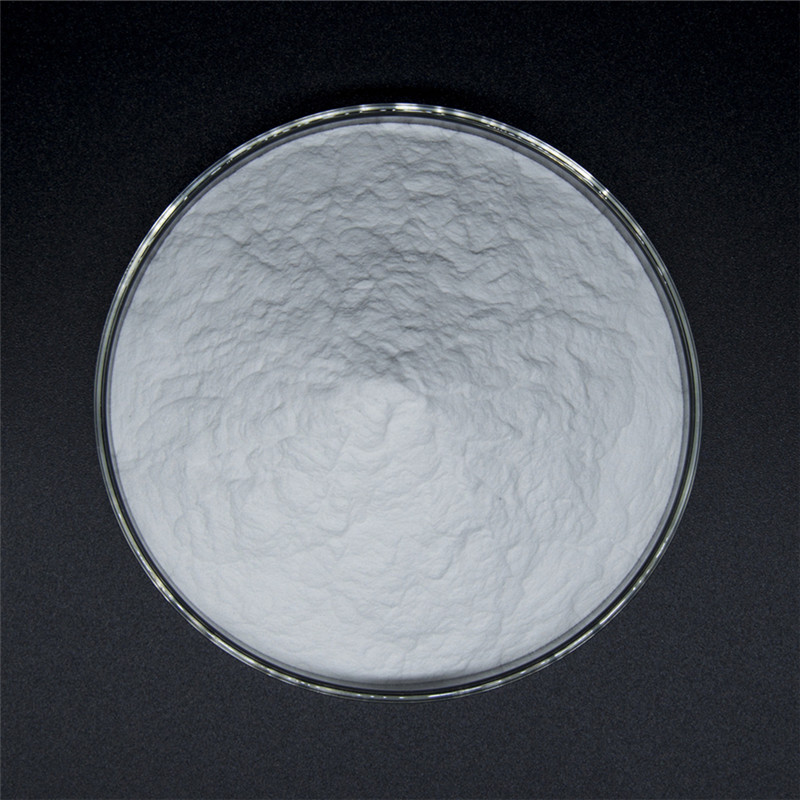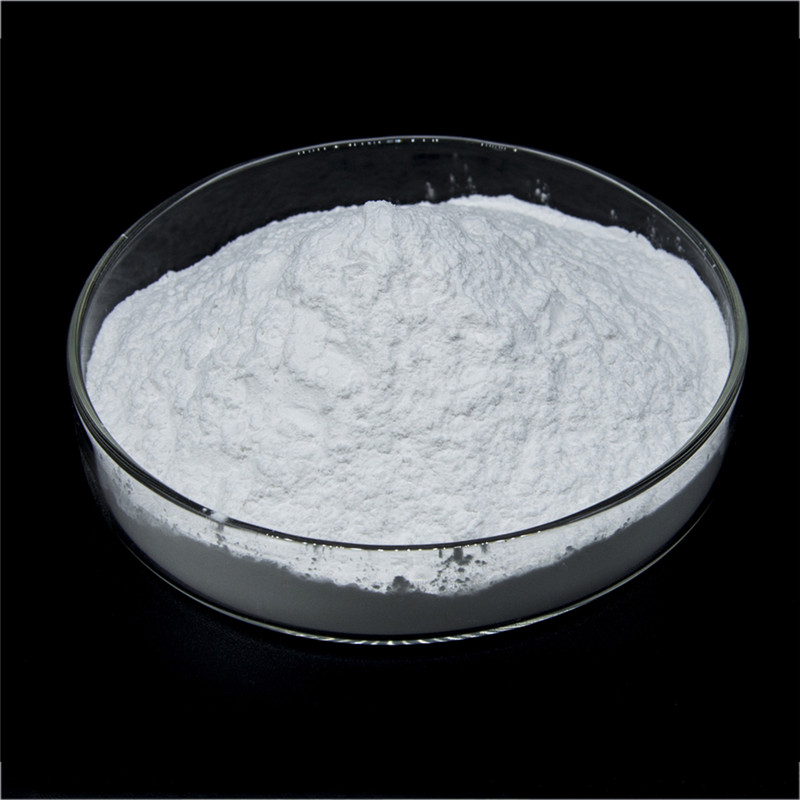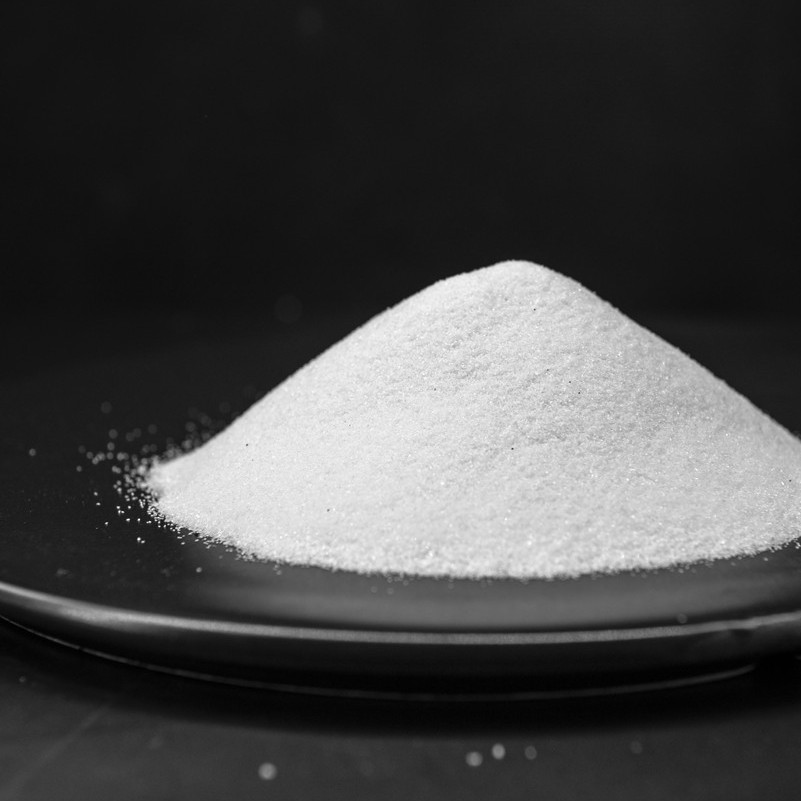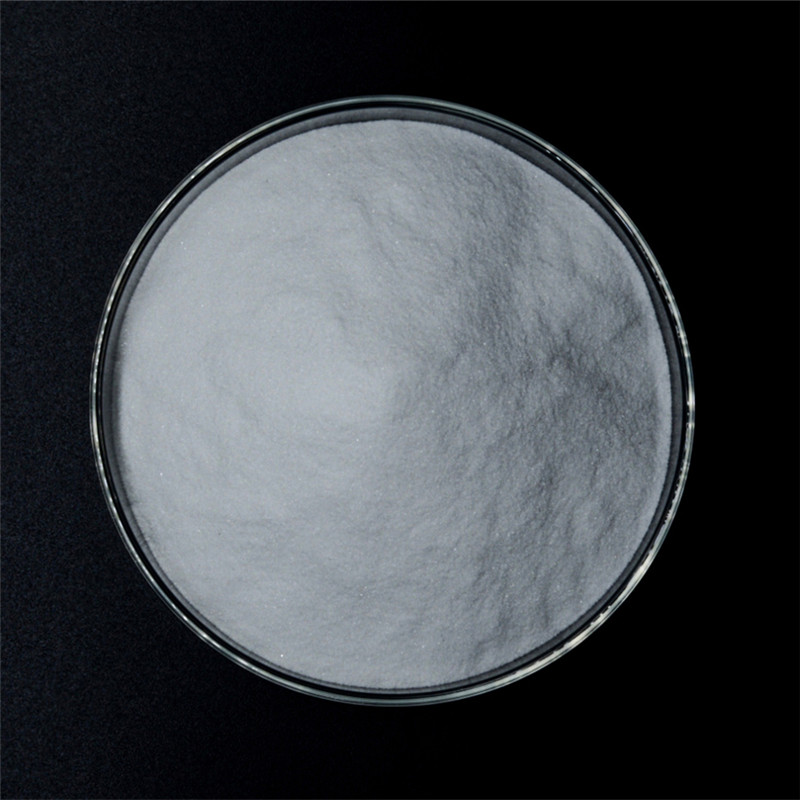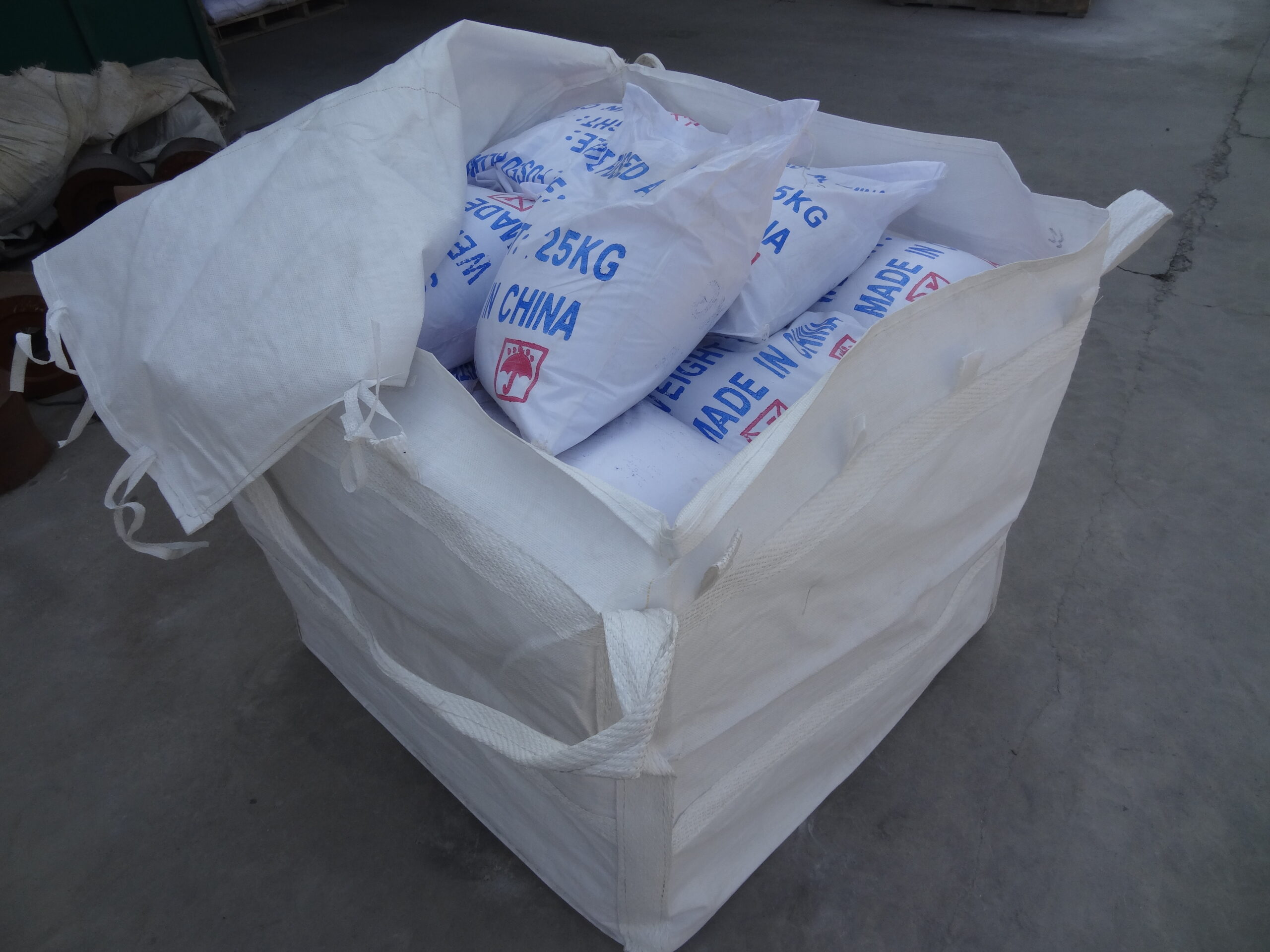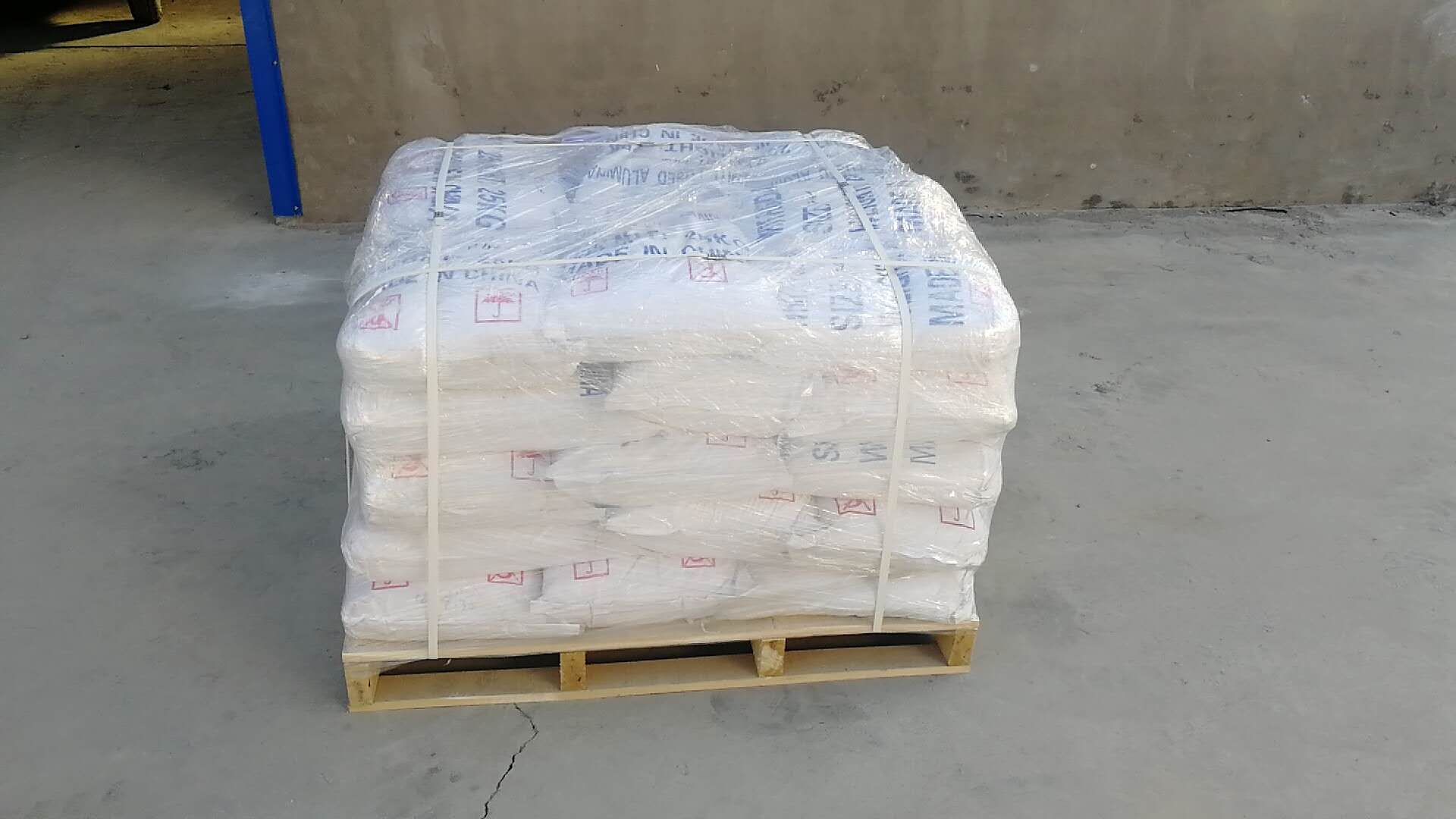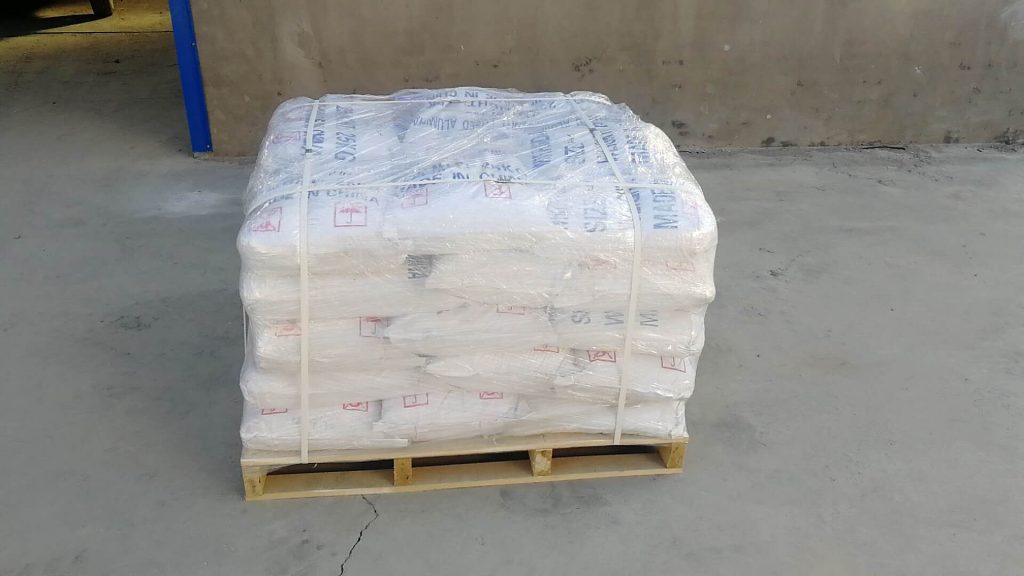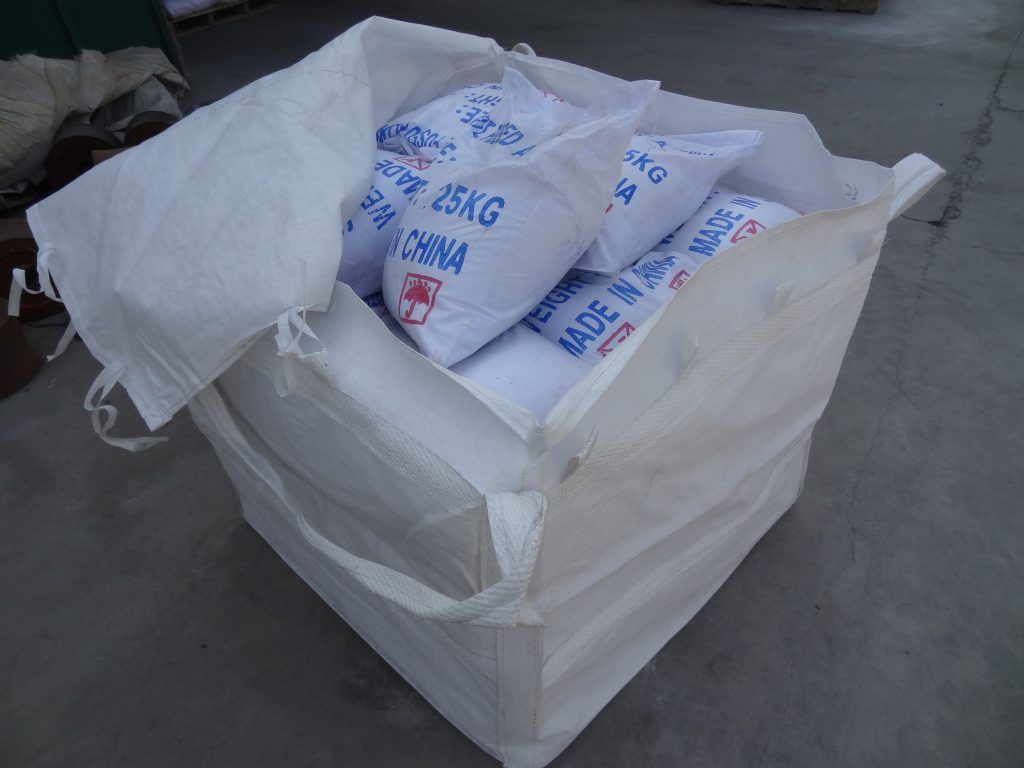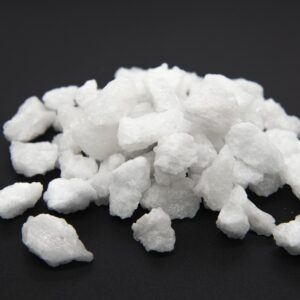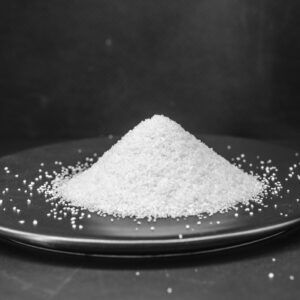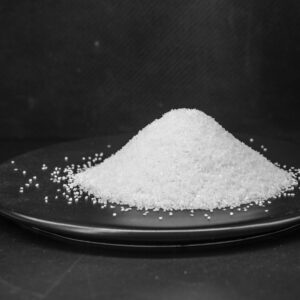Properties of White Aluminum Oxide for Metal Blasting
Physical and Chemical Analysis [%]:
| Physical Properties | |
| Hardness: micro | 21600-22600kg/mm3 |
| Hardness: Mohs | 9.0 min |
| Specific Gravity | 3.95-3.97g/cm3 |
| Bulk Density | 1.65-2.05g/cm3 |
| Particle Shape | Blocky, Sharp |
| Color | white |
| Chemical compositions | |
| Al2O3 | 99.30min |
| SiO2 | 0.15max |
| Na2O | 0.28max |
| Fe2O3 | 0.06max |
| CaO | 0.03max |
Advantages of White Aluminum Oxide for Metal Blasting
Superior Hardness and Cutting Performance
With a Mohs hardness of 9, it is one of the hardest blasting media available. It cuts quickly and efficiently, making it excellent for removing tough scale, oxides, and old coatings.
Low Contamination (The Key Feature)
This is its primary advantage. Its high purity ensures no iron or silica contamination is embedded into the blasted metal surface.
This is absolutely critical for:
Stainless Steel: Prevents “rouging” or surface rust spots that destroy corrosion resistance.
Titanium & Aluminum: Prevents galvanic corrosion caused by embedded foreign particles.
Any metal destined for painting or coating: A contaminant-free surface ensures maximum coating adhesion and prevents premature failure (e.g., peeling, blistering).
Reusability and Cost-Effectiveness
While more expensive upfront than slag abrasives or glass beads, White Aluminum Oxide is very durable and can be reused many times (often 5-15 cycles, depending on the blast system and pressure). This lowers the long-term operational cost.
Produces a Clean, Consistent Anchor Profile
Its sharp, angular grains fracture upon impact to reveal new, sharp edges. This creates a very uniform and sharp surface profile (anchor pattern), which is ideal for mechanical coating adhesion.
Safety
It generates significantly less hazardous dust compared to coal slag or copper slag abrasives and contains no free silica, making it safer for operators when combined with proper ventilation and PPE.
Ideal Applications for White Aluminum Oxide Blasting
Stainless Steel Fabrication: Removing heat tint (weld scale), preparing surfaces for passivation, and achieving a perfect, contaminant-free satin finish for architectural, food-grade, and pharmaceutical equipment.
Aerospace and High-Performance Components: Critical preparation of titanium, inconel, and high-strength steel components where any surface contamination is unacceptable.
Automotive and Precision Parts: Cleaning and profiling critical components like engine blocks, valves, and turbochargers before thermal spraying (e.g., plasma coating) or high-performance painting.
Die and Mold Cleaning: Effectively cleans and profiles tool steels without damaging the precise surface.
Surface Preparation for Coatings: Where maximum adhesion is required on critical structures like bridges, ships, and pressure vessels (especially when the substrate is stainless or alloy steel).
Grit Size Guide for Metal Blasting
| Grit Size | Common Use Case | Resulting Finish |
|---|---|---|
| F24 – F36 | Heavy Duty Removal: Thick mill scale, heavy rust, thick coatings. | Very aggressive, deep profile. |
| F46 – F60 | General Purpose: A good balance between speed and surface control. Removing moderate rust and scale. | Moderately rough profile. |
| F80 – F120 | Standard Finishing: The most common range. Ideal for final preparation for painting, removing light scale and heat tint from stainless steel. | Fine to medium matte finish. Perfect for coating adhesion. |
| F150 – F220 | Fine Finishing/Peening: Light cleaning, deburring, creating a smoother surface finish. | Smooth, low-profile surface. |
| F320 and finer | Polishing/Peening: Creates a near-polished, low-impact finish. | Very smooth |

